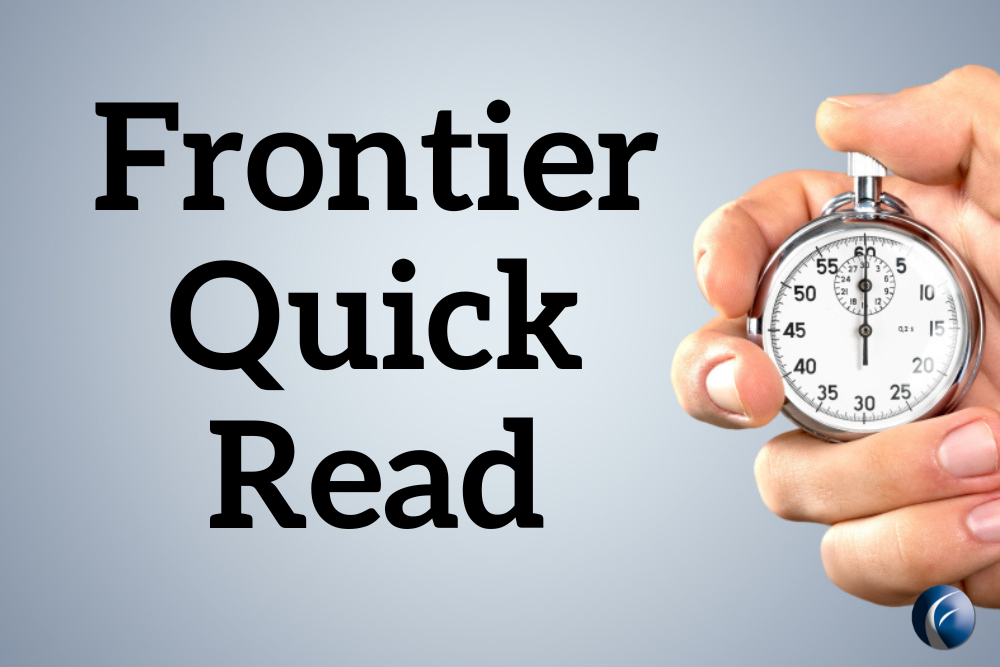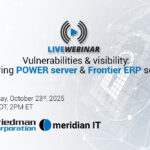
Choosing the right enterprise manufacturing software for your company can feel like navigating a maze. Some software solutions offer all the bells and whistles that you may never use. Others require extensive custom programming to handle your basic industry essentials. Finding the best ERP for manufacturing can be frustrating if you don’t plan properly.
To ensure that you make the right software choice, you must understand what you are looking to gain from an ERP system. This blog will guide you through finding the ideal ERP system, with a special focus on IBM i ERP solutions.
Understanding Manufacturing ERP Systems

Be aware that not all enterprise manufacturing softwares are alike. Take the time to evaluate your company’s needs before you choose an ERP system.
Enterprise Resource Planning (ERP) systems are vital for manufacturing companies. They bring all critical processes—inventory management, production scheduling, financials, and reporting—into a single, integrated platform. For manufacturers, the best ERP systems help streamline operations, improve efficiency, and ensure data accuracy across departments.
Manufacturing ERP systems can be tailored to different types of businesses. For example, discrete manufacturers, who produce distinct items like doors, furniture, or machinery, may need advanced product configurators. Process manufacturers, who create goods like chemicals or food, require precise formula management and batch tracking. Understanding these differences is the first step in narrowing your ERP manufacturing software choices.
Preparing Your Manufacturing Software Selection Plan
Selecting the best ERP software is a critical decision that requires careful planning. In doing so, you will be sure it meets your unique business needs and drives long-term success for your company. The following are strategic areas to include in your plan:
Focus on Your Top Challenges First
The best ERP for manufacturing should simplify your business processes, not complicate them. Start by identifying the most pressing challenges your organization faces. It may be tempting to tackle all issues at once. However, focusing on your top needs helps the manufacturing software provide quick value.
Are there any manual workflows that could be automated? Do time-consuming tasks slow down decision-making? These questions will help you identify the core requirements the manufacturing software must address to deliver measurable improvements.
Consider it a bonus if the manufacturing ERP also solves secondary concerns beyond your primary goals. For example, order management isn’t a main goal, however, ERP systems eliminate data silos and optimize your sales order management.
Streamline Your Decision-Making Process
To make the selection process manageable, rank your top challenges using a simple or weighted scale. Narrow your focus to 15 or fewer critical features that align with your business needs. By focusing on these key abilities, you can better assess possible ERP solutions. This will help you pick the one that provides the best financial and operational benefits.
Address Current Pain Points
Assess your existing challenges to ensure the ERP system you choose targets the right areas. Are bottlenecks in production hindering efficiency? Are inventory inaccuracies or forecasting difficulties impacting your bottom line? Pinpointing these issues will guide you in selecting features that directly resolve your pain points and streamline your processes.
Plan for Scalability and Industry-Specific Needs
The best ERP for manufacturing should support business growth. Whether you’re scaling up operations or entering new markets, ensure the solution can grow with you.
Additionally, consider industry-specific requirements. For example, cabinet or window companies may benefit from an ERP that integrates easily with dealer portals. By aligning the manufacturing software with your industry and growth goals, you set your business up for long-term success.
Gain Buy-In from Key Stakeholders
Engaging key stakeholders and executive management in the ERP selection process is essential for a successful implementation. To secure their support, use a cost-benefit analysis to demonstrate the value beyond just cost savings.
For example, automated procurement workflows can significantly improve employee efficiency. By eliminating manual purchasing tasks, employees have more time to focus on high-impact activities like vendor relations. This not only enhances productivity but also improves supplier collaboration efforts.
Evaluating Key ERP Features
The best ERP for manufacturing should include essential features that improve manufacturing and operational processes. Some must-haves include:
-
Product Configurators: These tools allow manufacturers to create customized products efficiently. This is especially critical for make-to-order industries like furniture or window treatments where customers can choose different product variations.
-
Configure, Price, Quote (CPQ) Software: CPQ software streamlines the sales process by enabling manufacturers to configure complex products, generate accurate quotes, and provide real-time pricing instantly. This improves customer satisfaction, reduces errors, and accelerates the time it takes to close deals.
-
Inventory Management: Effective inventory management is a cornerstone of a manufacturing ERP. A good system allows you to monitor stock levels in real-time, reorder supplies automatically, and prevent stocking issues.
-
Integration with Critical Tools and Data: Your ERP system should easily connect with other software, such as CAD programs or customer portals. Seamless and accurate data integration from other systems is also critical. This provides a unified view of your operations.
-
Real-Time Production Control: Being able to track production in real-time allows you to respond to issues and prevent bottlenecks quickly. The best ERP for manufacturing allows for production planning and status monitoring with built-in MES. It also helps you manage schedules and adjust as needed to keep things running smoothly.
Deployment Option Considerations
Start by deciding how you want to deploy your ERP system: on-premises, in the cloud, or as a hybrid solution. Cloud ERP solutions offer accessibility and lower upfront costs, while on-premise systems provide more control and customization.

The best ERP for manufacturing will elevate the efficiency of your operations and production processes.
Many IBM i ERP systems provide flexible deployment options, making them a great choice for diverse manufacturing needs. Each option has its advantages and disadvantages. It is important to choose the deployment model that fits your processes. This will help you achieve the best return on investment (ROI).
Navigating Vendor Options
Once you’ve identified your requirements, it’s time to evaluate vendors. Start by researching companies known for ERP manufacturing software. Look for vendors with strong reputations, proven track records, and solutions tailored to your industry.
Customer reviews and case studies are invaluable. They reveal how well a system performs in real-world scenarios. Additionally, evaluate the level of support and training each vendor offers. A great ERP system isn’t just about features—it’s also about your partnership with the vendor.
The Role of Demonstrations and Trials
ERP demonstrations and trials are critical to the decision-making process. Request a demo that highlights how the software system will address your manufacturing processes and operations. For example, if there are problems with inventory accuracy, request to see the inventory management module in use.
During the trial, involve key stakeholders from various departments. Their input will help ensure the chosen ERP software meets the needs of the entire organization. Use this opportunity to evaluate the system’s usability and determine if it aligns with your workflows.
Tips for Successful ERP Implementation
Selecting the best ERP for manufacturing is only half the battle. Implementing it effectively is equally important. Begin with a clear roadmap for integration, outlining timelines and responsibilities.
Allocate resources for training your team, as adoption is critical to success. An intuitive interface makes it easier for your team to adopt and benefit from the new technology. It also enhances employee productivity.
Be mindful of common pitfalls. Rushing the implementation process or failing to address resistance to change can derail even the best plans. Work closely with your ERP vendor to anticipate challenges and develop contingency plans.
Why Frontier ERP Stands Out
Frontier is a leading ERP software solution for manufacturers seeking advanced tools to optimize their operations. Built on the robust IBM i platform, it offers reliability, scalability, and industry-specific features.
A key advantage of Frontier ERP is its built-in CPQ software that quickly configures products, applies pricing, and generates accurate quotes—eliminating manual entries and lead-time guessing. Frontier’s Parametric Product Configurator handles complex customizations, letting clients personalize options like colors, sizes, features, and accessories while streamlining ordering and production.
The system also excels in real-time production tracking, helping manufacturers stay on schedule and manage resources efficiently. Whether you’re in glass, wood, or metal products, Frontier ERP delivers tailored solutions to meet your needs. Our dedicated support and training programs make it a trusted choice for businesses of all sizes.
Conclusion
Finding the best ERP for manufacturing can seem daunting. However, with the right approach, it becomes more manageable. Start by understanding your needs, evaluating key features, and researching vendors. Leverage demonstrations and trials to ensure a good fit, and plan carefully for implementation.
If you’re searching for a solution that combines powerful features with industry-specific customization, consider Frontier ERP. Take the next step in completing the manufacturing software maze by exploring Frontier ERP today.






